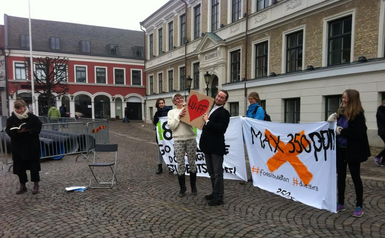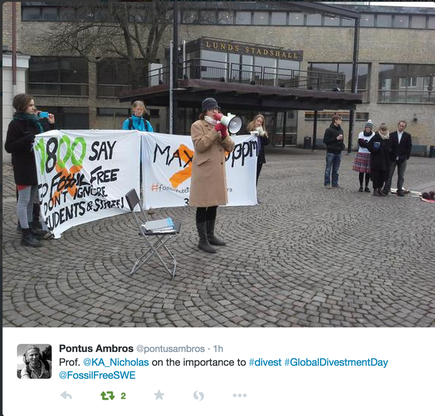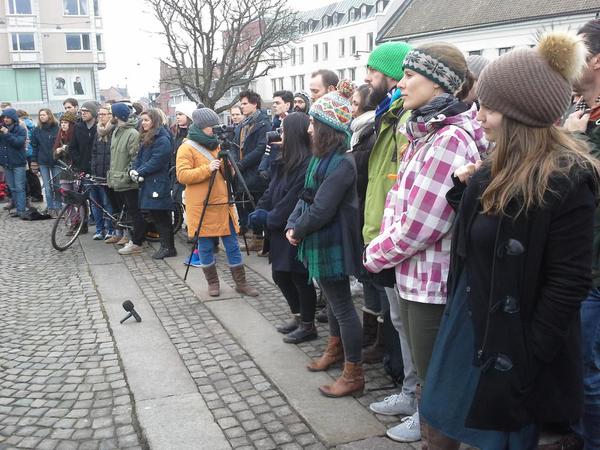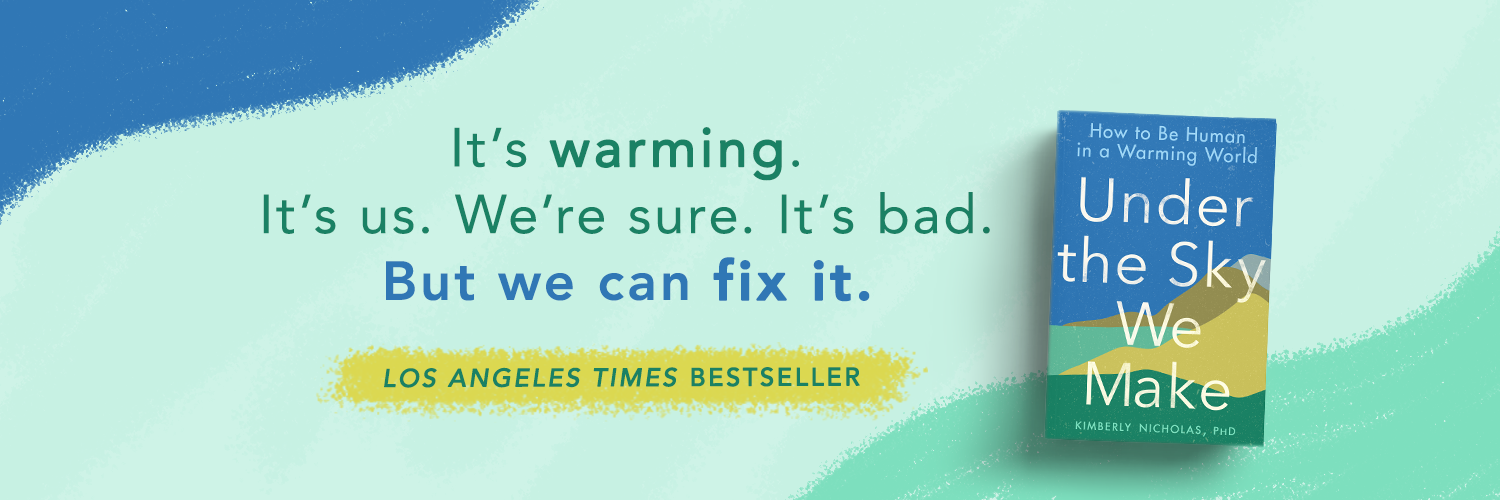|
I have come to believe that one of the biggest impediments to scientific advancement is writing. This is true in at least two ways. First, writing is often the critical bottleneck standing between the mountains of good ideas on whiteboards, hard drives, and inside people's heads that have not yet found a way to be communicated to a wider audience (both scientific and public). Second, the writing in published papers often does not help (and may actively hinder) the reader's understanding of the research and its implications.
Nicholas Kristof was more blunt about this in his recent New York Times Op-Ed (with which I largely agree), asserting that PhD programs have "fostered a culture that glorifies arcane unintelligibility while disdaining impact and audience" (ouch!). He cites a related piece by Jill Lepore in the Chronicle of Higher Education, where she describes academia as a "great, heaping mountain of exquisite knowledge surrounded by a vast moat of dreadful prose" (double ouch!). I think a fundamental problem here is that, although writing is a skill that can be taught and requires practice to master, writing is rarely taught. I never took a writing course in graduate school. I had professors who spent time correcting and commenting on papers (which I appreciate all the more now that I'm on the other side of the red pen), but I'm not sure I was able to take their specific comments and generalize them into principles of better writing. (I also think I didn't realize how important writing was until after I started editing and reading more papers than I wrote.) One way I've tried to teach writing is to develop templates, outlines, and rubrics that spell out a paper's structure, so that students can concentrate on developing and communicating their ideas in a way that will be clear to the reader. (I've had interesting discussions with my colleague Ladaea Rylander of the Lund University Academic Support Centre about the risks of templates suppressing creativity, some of which we address in our forthcoming book chapter; my basic conclusion is that I'm very happy for students to ignore these templates and do something creative if they are inspired to do so, but that many seem to benefit from and appreciate them). Without further ado, here are some of the resources I've made so far. I hope they're useful, and welcome feedback! Writing an academic abstract: a MadLibs (fill-in-the-blank) template adventure. The Thesis Toolbox- slides from a workshop I gave for 40 master's students from across Lund University to get them started on designing their thesis. Template for writing a master's thesis research proposal - use this to structure your ideas, and eventually as the basis for writing your thesis. Generic Paper Outline, Or, What Goes Where in a Scientific Paper? Start here when you have to write up a thesis or journal article and fill it out as you go along. Finally, here's a long and somewhat cheeky guide to common problems I see in student writing, and suggested ways to overcome them.  It started out as a love affair to remember, but student street theater dramatized the breakup between Lund University and fossil fuels. It started out as a love affair to remember, but student street theater dramatized the breakup between Lund University and fossil fuels. Today for Global Divestment Day, along with hundreds of events organized worldwide, my students in Lund and others in Fossil Free Sweden held a street theater performance dramatizing the impending breakup of a relationship that has turned destructive: the connection between Lund University and fossil fuels. They asked me to give a short speech on the science of climate change and the connection with divestment. Speech text follows. Thank you to my students for inviting me here, and to all of you for being here. I’m Kim Nicholas, Associate Professor of Sustainability Science at the Lund University Centre for Sustainability Studies. I’m here representing the scientific perspective on the urgency of climate change. Based on this urgency, I’m also here representing many of my colleagues, fellow faculty across departments and disciplines, who are joining together with an open letter urging the board at Lund University to comprehensively divest from fossil fuels with all due speed. Earth system scientists are like doctors, taking the pulse of the planet. And like doctors, when we see something from our measurements that worries us, we owe it to our patients to speak up. To give you my diagnosis upfront: science tells us that the climate is warming, it’s caused by our activities, we’re sure, it’s bad- and most importantly, that we can fix it, which is why we’re here today. For decades now, my colleagues and I are seeing that something is wrong with the patient Planet Earth. We see it in every corner of the globe- from melting ice sheets, to my own research studying how the climate affects food production. I am truly worried about how climate change is already decreasing crop yields and quality around the world. We have already seen a decline in cereal yields of 10% for every 1°C temperature increase since 1980.
Continuing on our current path of fossil fuel emissions produces some truly terrifying risks. The more carbon we emit, the more warming we expect, and the more severe, widespread, and irreversible the impacts. This is the conclusion of scientists regarding impacts on food production and water access, on natural habitat and human health.
This means that unchecked climate change limits our options for a good life, and makes such a life further out of reach of those around the world whose basic needs are not met today. So how do we avoid this risky future? It is a big challenge, but we have solved big challenges before. It is late in the game, but we are not too late. We have an opportunity to act now, and we must seize this opportunity. How do we “fix” climate change? There’s a very simple answer. There is widespread scientific agreement that, to reduce the risks we face, we need to limit warming to 2°C. To meet this target, just like we have a home budget to live within our means, the planet’s atmosphere has a budget of carbon dioxide. There are five times more fossil fuel reserves than the atmosphere can afford to absorb without exceeding the danger zone of warming. Meeting our carbon budget and avoiding dangerous warming means that the majority of fossil fuel reserves need to stay in the ground. If these reserves are burned according to current business plans, we are facing very serious risks. We need to pursue every option we have today to make a good life, a healthy life full of opportunities, one that does not run on carbon. This is why continued investment by Lund University in companies that profit from fossil fuels flies in the face of science. The research carried out here, and at other universities around the world, clearly shows the risks. It is logically inconsistent for Lund University to ignore the knowledge it is helping to produce in guiding its own management choices. Personally, I believe it is also ethically inconsistent for Lund University to continue its investment in fossil fuels. Even if its fossil fuel holdings are small, about 1% of funds, these investments are out of line with the ideals of a university like Lund. What is the purpose of a university? Lund University’s mission statement is to “understand, explain and improve our world and the human condition.” Universities are a place where we confront the sometimes very big gap between our highest ideals, and the imperfect world we see around us every day. Universities exist to help close that gap: to innovate, to create an example of how things can be better. With divestment, we have an opportunity to do just that. The faculty of Lund University are here to teach and to challenge our students. But sometimes our students challenge us, and question our assumptions- and this is a challenge we must face. Now our students are speaking with a clear voice: their future is at risk, and they want their university to lead the way to something better. I want to be a part of that University as well, one that not only supports the best research, but also supports putting those findings into practice in its own actions. The students I teach in the LUMES program come to Lund from 30 different countries around the world. They come because Sweden, and especially Lund University, has a reputation as a global leader in sustainability. I came here myself from California for that reason. There is a growing global movement for a better future, and I want Lund University to lead the way there. To walk this path, we call on the Lund University Board to join others around Sweden and the world in comprehensive divestment from fossil fuels. |
Categories
All
Archives
November 2023
|
KIM NICHOLAS


 RSS Feed
RSS Feed

